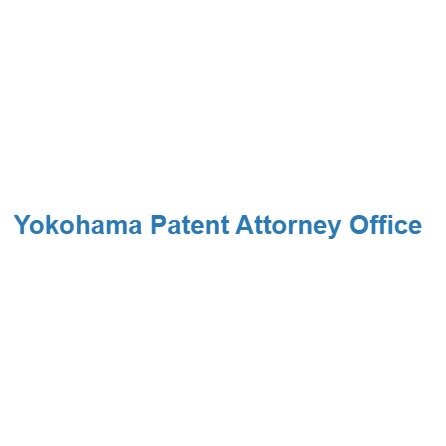Best Intellectual Property Lawyers in Kanagawa
Share your needs with us, get contacted by law firms.
Free. Takes 2 min.
List of the best lawyers in Kanagawa, Japan
About Intellectual Property Law in Kanagawa, Japan
Intellectual Property (IP) law in Kanagawa, Japan, is a critical aspect of the legal system that protects the rights of creators and innovators. It encompasses a range of regulations that guard inventions, designs, symbols, names, and artistic works. Japan follows a comprehensive IP framework that aligns with international treaties and standards, such as the WIPO Copyright Treaty and the Patent Cooperation Treaty. In Kanagawa, just like in the rest of Japan, IP rights include patents for inventions, trademarks for brand identity, copyrights for literary and artistic works, and design rights for the aesthetic aspect of products.
Why You May Need a Lawyer
Companies and individuals may require legal help in various situations involving IP in Kanagawa. If you are developing a new invention, creating a unique brand, or engaged in any form of creative work, an IP lawyer can help you secure your rights. Legal advice becomes vital when filing for patents, registering trademarks or designs, or addressing possible infringements. Additionally, lawyers play an important role in negotiating and drafting licensing agreements, dealing with counterfeiting issues, and taking legal action against unauthorized use of intellectual property.
Local Laws Overview
The key aspects of local laws relevant to IP in Kanagawa are based on national Japanese law and provide an extensive structure for IP protection. The "Patent Act" covers inventions; the "Trademark Act" regulates the protection of brand names and logos; the "Copyright Act" governs literary and artistic works; and the "Design Act" protects the aesthetic properties of items. Japan's IP laws enforce strict penalties for infringements, ensuring strong protection for rights holders. Furthermore, Japan has a specialized IP High Court that handles complex IP disputes efficiently.
Frequently Asked Questions
How do I register a patent in Kanagawa?
To register a patent in Kanagawa, you must file an application with the Japan Patent Office, provide a description of the invention, and demonstrate its novelty and utility. The process includes an examination to ensure it meets all requirements.
Can I register a trademark internationally from Japan?
Yes, you can apply for international registration through the Madrid Protocol by first registering your trademark in Japan and then extending the protection to other member countries.
How long do copyrights last in Japan?
Copyrights in Japan last for the life of the author plus 70 years after their death. For corporate works, the duration is either 70 years from publication or 70 years from creation, whichever is shorter.
What is considered a design under Japanese law?
Under Japanese law, a design refers to the shape, patterns, or colors, or any combination thereof, of an article that creates an aesthetic impression through the sense of sight.
Is it necessary to sign a non-disclosure agreement while discussing my invention?
While not legally necessary, it is highly recommended to sign a non-disclosure agreement to protect your IP when discussing potentially patentable inventions with others.
How do I address a potential IP infringement in Kanagawa?
If you believe your IP rights have been infringed upon, consult with an IP lawyer to assess the case and, if necessary, take legal action to stop the infringement and seek damages.
What is the process for IP litigation in Japan?
IP litigation in Japan involves filing a lawsuit through the legal system, with potential cases being elevated to the IP High Court, where specialists rule on the matter based on evidence and legal arguments provided.
How do I prove ownership of my copyright in Japan?
Copyright in Japan is automatically established upon creation of the work. Registration is not required, but it can serve as evidence of ownership. Retaining drafts, dated materials, and other documentation can also support your claim.
Are there any specific considerations for software patents in Japan?
Software can be patented in Japan if it meets the criteria of being novel, non-obvious, and industrially applicable, and if it produces a "creative technical idea" in conjunction with hardware.
Can I register a trade secret in Kanagawa?
There is no system for registering trade secrets in Japan. However, they are protected under the Unfair Competition Prevention Act as long as the information is kept secret, has economic value, and has been subject to reasonable efforts to maintain its secrecy.
Additional Resources
For those in need of legal advice concerning IP in Kanagawa, the Japan Patent Office (JPO) is a crucial resource, providing guidelines and assistance for IP registration and protection. The Intellectual Property Association of Japan (IPAJ) and the Japan Intellectual Property Arbitration Center (JIPAC) are also valuable for information and dispute resolution. Additionally, you may find local legal clinics and IP-focused seminars helpful.
Next Steps
If you require legal assistance with intellectual property in Kanagawa, consider the following actions:
- Document all relevant creations, inventions, or unique business identifiers.
- Research qualified IP lawyers or law firms with expertise in your specific area of concern.
- Arrange a consultation to discuss your situation and explore options for protecting your IP rights.
- Consider starting the registration process for patents, trademarks, or designs with the help of your lawyer, if applicable.
- Stay informed about any changes in IP laws and regulations that may affect your rights.
Lawzana helps you find the best lawyers and law firms in Kanagawa through a curated and pre-screened list of qualified legal professionals. Our platform offers rankings and detailed profiles of attorneys and law firms, allowing you to compare based on practice areas, including Intellectual Property, experience, and client feedback.
Each profile includes a description of the firm's areas of practice, client reviews, team members and partners, year of establishment, spoken languages, office locations, contact information, social media presence, and any published articles or resources. Most firms on our platform speak English and are experienced in both local and international legal matters.
Get a quote from top-rated law firms in Kanagawa, Japan — quickly, securely, and without unnecessary hassle.
Disclaimer:
The information provided on this page is for general informational purposes only and does not constitute legal advice. While we strive to ensure the accuracy and relevance of the content, legal information may change over time, and interpretations of the law can vary. You should always consult with a qualified legal professional for advice specific to your situation.
We disclaim all liability for actions taken or not taken based on the content of this page. If you believe any information is incorrect or outdated, please contact us, and we will review and update it where appropriate.
Browse intellectual property law firms by service in Kanagawa, Japan
Kanagawa, Japan Attorneys in related practice areas.









